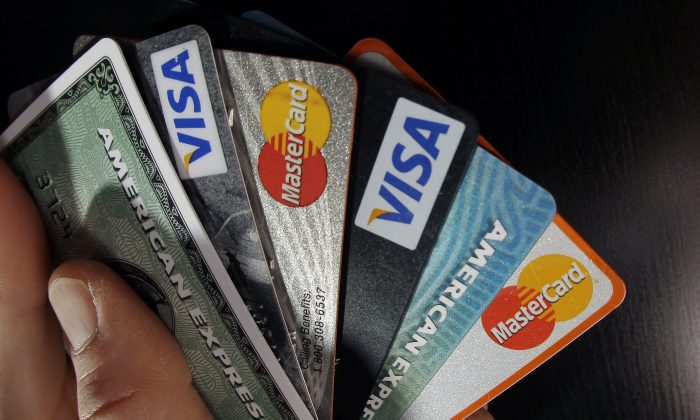Commentary
You have a dream. Picture yourself on a beach with golden sand, holding a bucket that can carry a million dollars’ worth of sand back home. You start scooping sand into the bucket, feeling richer with each scoop. But then you realize the bucket has a hole at the bottom, causing the sand to escape.
You try to fill the bucket faster, but the sand keeps slipping away. No matter how hard you work, the bucket never gets full. In fact, the sand level decreases as you scoop more sand into it.
This scenario is similar to trying to get richer through debt. Debt may seem like an easy solution to have things you desire but can’t afford. However, it often becomes a harmful habit that is difficult to break. The cost of debt keeps growing, making it impossible to accumulate the wealth you hoped for.
While we all recognize the dangers of debt on some level, many still view it as a necessity in their lives. Whether it’s buying homes, cars, or using debt to acquire intangible values like status or self-worth, the allure of debt can be strong.
Although there are rare instances where debt can be beneficial, it is crucial to understand that debt is always risky. It’s essential to assess the true cost of debt and evaluate if it’s truly affordable before taking on any financial obligations.
My First Mistake With Debt
My first encounter with significant debt occurred when I was 30 years old. My wife and I were offered a chance to buy a condominium in Washington, D.C., with no down payment for $60,000. Excited by the opportunity, we signed up for a mortgage with an 11% interest rate and a three-year term.
Unaware of the true costs involved, we found ourselves in a negatively amortizing mortgage that ended up costing us more than anticipated. Despite trying to refinance, we were stuck with a deal that drained our finances and left us with nothing to show for it.
This experience taught me valuable lessons about the dangers of debt and the importance of understanding its implications before committing to any financial agreements. It was a costly mistake, but it shaped my approach to finances in the future.
2 Examples That Illustrate the Danger of Debt
Consider a scenario where you accumulate $30,000 in credit card debt and decide to pay it off with $400 monthly payments. It would take you 10 years to clear the debt, costing you $47,428 in total payments, with a significant portion going towards interest.
Similarly, taking out a $400,000 loan for a $500,000 home with a 6.5% interest rate over 30 years would result in total payments of $910,178, with more money spent on interest than the principal amount.
You will end up paying $810,249 for the house, which is more than double what it cost originally.
The commercial community, which includes bankers and manufacturers, wants you to embrace debt. They encourage you to use it for your purchases as it benefits them financially.
Debt can be likened to a cancer that slowly eats away at your wealth without you realizing it. It is important to be cautious when taking on debt and to avoid it whenever possible.
3 Things You Should Do to Reduce Debt
Avoid taking on debt whenever possible, except in certain strategic situations. Living within your means and avoiding unnecessary expenses can help you stay debt-free.
When it comes to purchasing items like cars, opt for affordable options rather than luxury purchases that can lead to long-term debt.
Avoid using credit cards for everyday purchases and instead opt for a debit card. Only use credit cards when necessary, such as for renting cars.
One exception to the rule is taking on a mortgage for a house, but only if the property is reasonably priced and likely to appreciate in value. Be cautious when entering into mortgage agreements.
Another exception is leveraging debt for wealth-building purposes, such as investing in rental real estate. However, this should be done carefully and with a clear strategy in place.
Overall, living a debt-free life can lead to greater financial stability and security in the long run.
Eliminating debt as quickly as possible is key to achieving financial freedom and peace of mind.
Could you please provide a different version?
Source link





